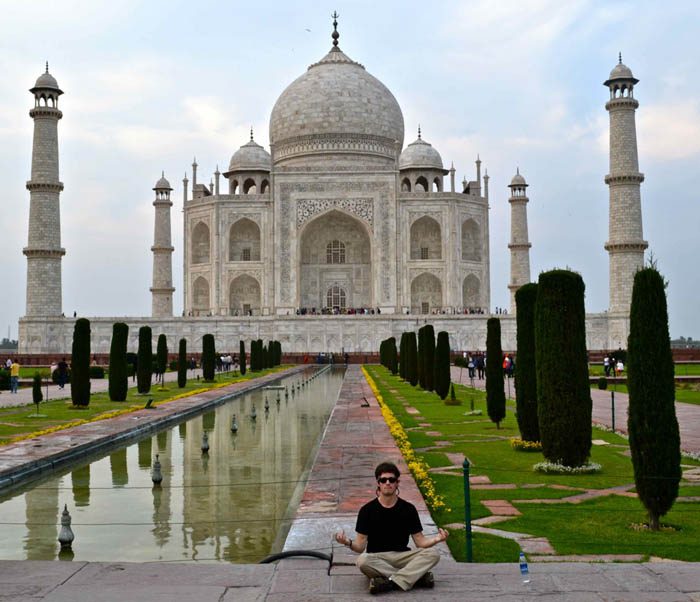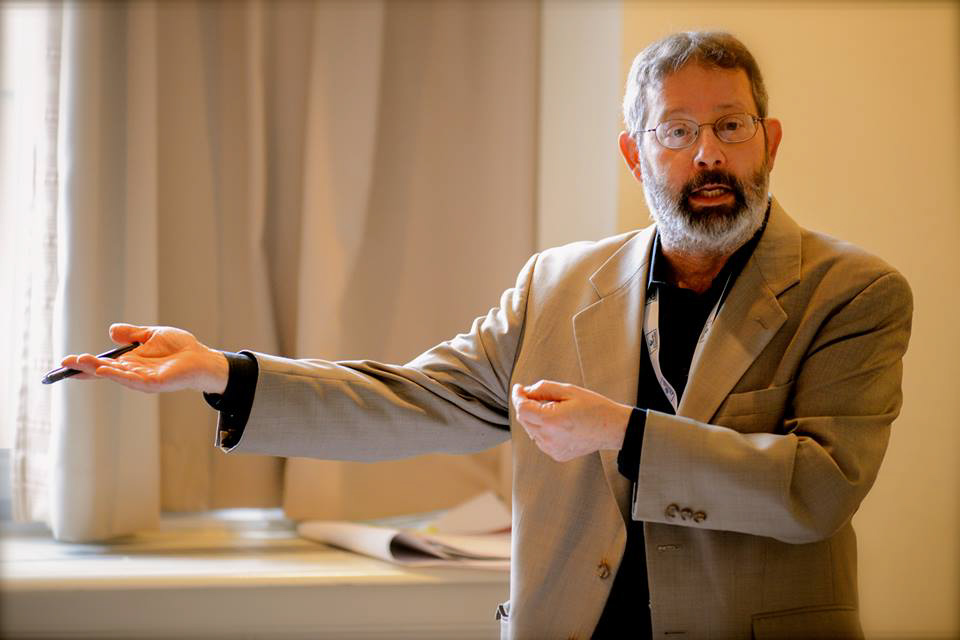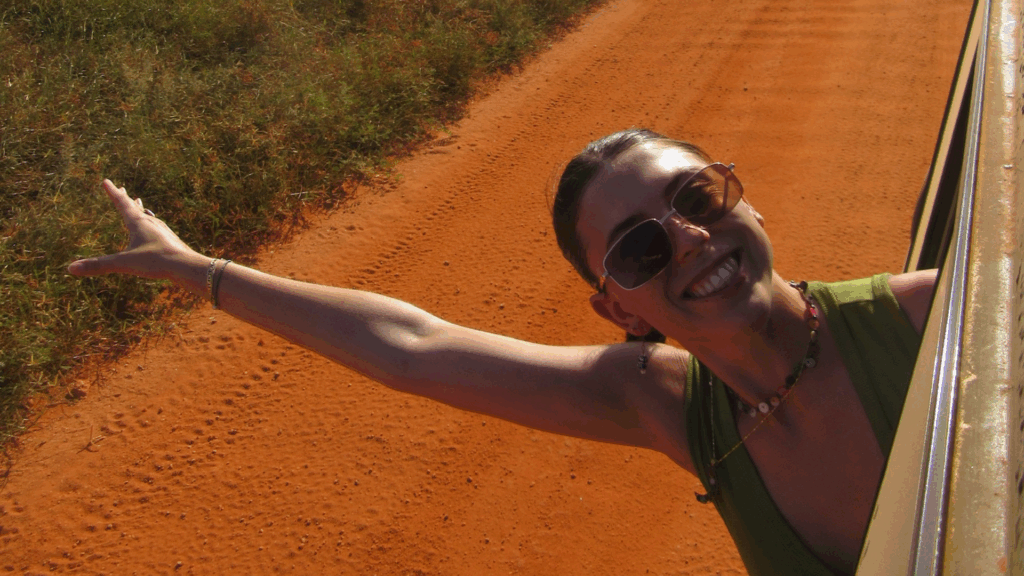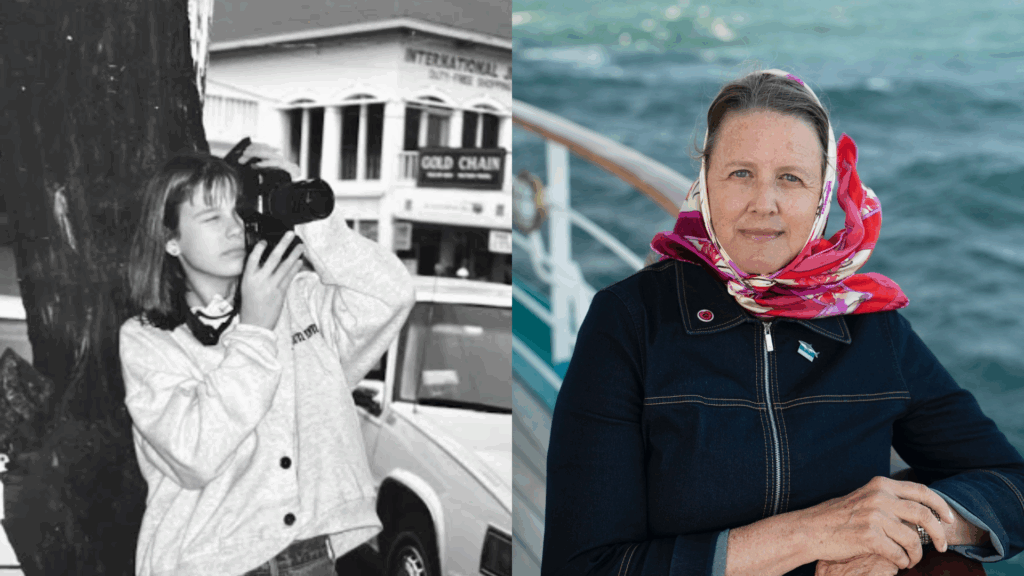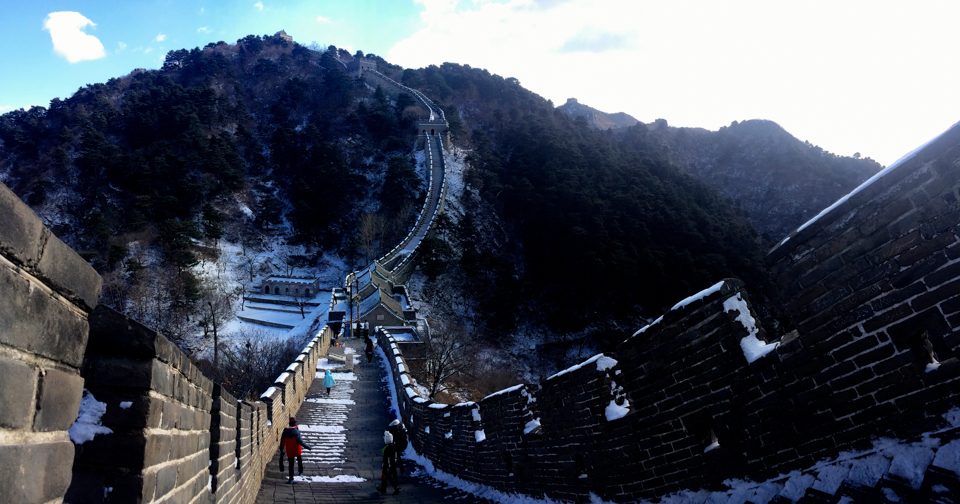
Dear friends,
This is our new normal.
I couldn’t tell you what day of the week it is, but I know either it’s an A Day, B Day or Study Day. Our closets are full of Vietnamese straw hats, Aung San Suu Kyi shirts, and Indian elephant pants. We aren’t frat stars or hipsters. We are SASers, and three and a half months and ten countries later we all share a new normal, a new perspective of the world we live in. And it’s all because of Semester at Sea.
Back home, I would have spent most of this semester complaining about the snow, I’d have gone to the same parties with the same people each weekend, and I’d be freaking out about what I wanted to do with my life. Instead I karaoke’d in Japan, climbed the Great Wall of China in the freezing snow, sailed on the holy river Ganges in India, and got lost in the world’s largest market in Morocco. I’m still freaking out about what I want to do with my life. But that’s ok.
I’m more aware of the world we live in and realize how beautiful, how strange, and how scary it can be. And I did this all with some of the coolest, smartest, goofiest, most wonderful people that I’ve come to know and love. I am — we all are — the luckiest people in the world.
But it wasn’t always this way. Our new normal is the result of a long journey, one that started back in January in Ensenada, Mexico where we anxiously waited in line to board the ship for the first time. With suitcase, passport, and yellow fever papers in hand, we began looking around at all these strangers and began to think: “Are you my roommate?” “Are we going to be best friends?” “Are you my future wife?” “Oh, I hope you’re my future wife.”
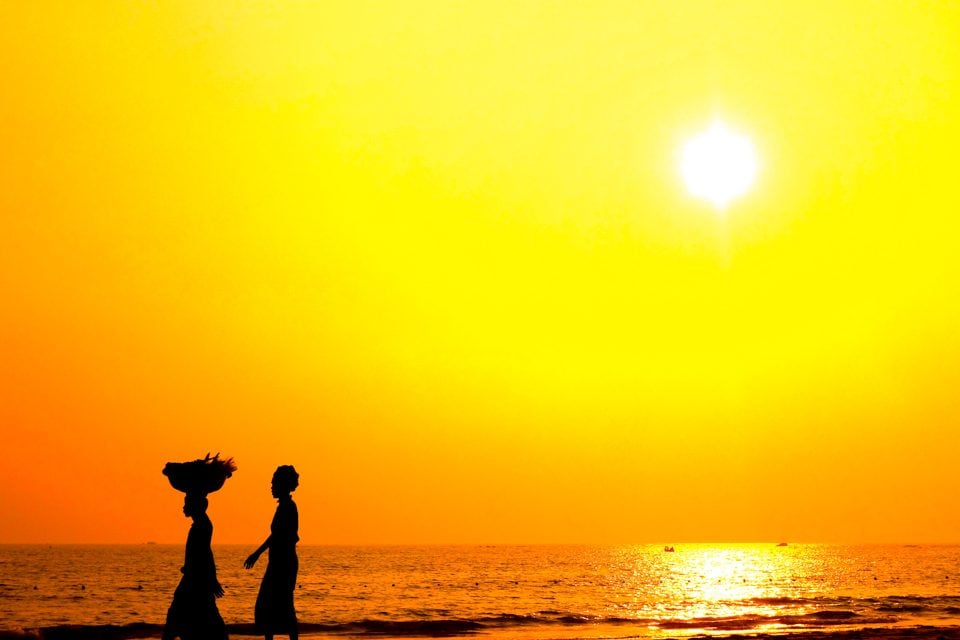
Soon these strangers became friends, and we began to adjust to life on a floating university, a place where classrooms look out to the vast ocean and seasickness is a legitimate excuse for missing class.
But the part of travel that we don’t talk about enough is the relationships ‚Äì the people you travel with are just as important as the traveling itself. With these people we were allowed to be scared, to be vulnerable, and to be truthful, to each other and to ourselves.
It was with these new friends that I woke up to watch the sunrise on the 6th deck outside and sat on the 8th deck to watch the sunset. Instead of texting or checking Facebook, we all focused on the sun and talked about how beautiful it was. This was our new normal — life on the MV Explorer, our new home away from home.
And then we came to Japan, where our new normal was changed once again. As soon as we’d learned to navigate life at sea, we had to navigate through new ports with new languages, new cultural norms, and new challenges.
Our lives were changing so much and so quickly, but with this new adjustment, we began to adjust ourselves. We began discovering things about who we were as we were in the process of creating ourselves. All of a sudden, this whole travel-around-the-world thing wasn’t so intimidating. And all of a sudden, the MV Explorer was no longer a home away from home, but it was our home. This is the new normal in which we now live.
Soon we will adjust to another new normal — life after SAS. We’ll go back to driving on roads instead of sailing on waters. When we read about Myanmar and Ghana in the news, we’ll not only know where they are, but we will think of the bonds we made with people in those countries. When we left home we were citizens of our own countries, but when we come back we will be citizens of the world.
Despite feeling like a new person, a new citizen of the world, I’m not so naƒ´ve to believe that Semester at Sea will solve all of our problems. We will not come back to our homes and have all the answers to life’s questions. We’ve learned firsthand that we cannot change the world, not in the ways that we might think we can or should. No matter our intentions, there will always be poverty, there will always be sickness, and there will always be corruption and injustice. We can’t change the world, simply because the world has changed us. But I have some good news — returning to our familiar places does not mean that you have to return to your old way of thinking.
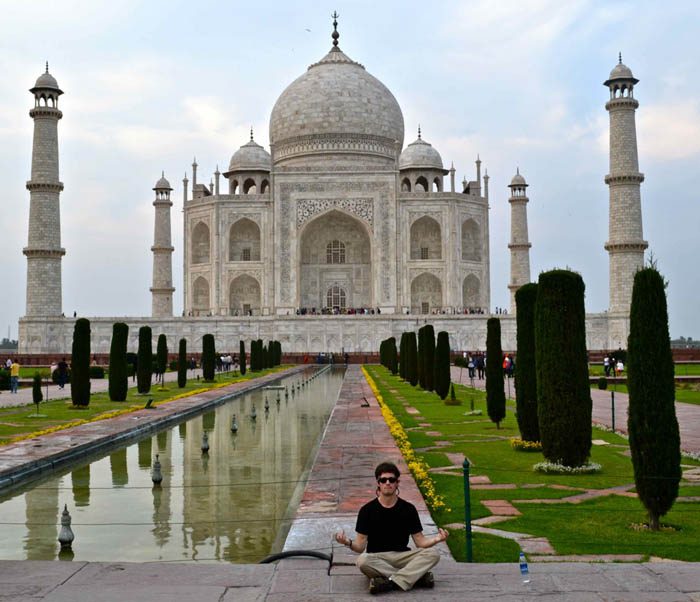
Semester at Sea does not end in London when we fly back to our homes and reunite with our family and friends, and it doesn’t end when we graduate college and start careers and families. As the years go on we will see our journey come out in the smallest but most amazing ways. Our voyage on the MV Explorer is ending, but like John Tymitz always said to his students, “The best is yet to come.”
So may your days be full of joy and wonder.
May you always remember the moments you were challenged and confused and hurt by the world, the times you were inspired and floored by the simple gestures of kindness by strangers, and the moments you felt on top of the world.
May you continue to travel the world, but may you also rediscover your old home, and challenge yourself to see your home in what it could be, rather than what it once was.
May you continue watching the sunsets and sunrises wherever you may be, and always remember the people you watched them with.
May we embrace this new way of thinking and make the world a better place for ourselves, a place where we don’t set limitations, but rather we set destinations.
May we always be Emerald Shellbacks. May we always be world travelers. May we always be the crazy wonderful people that we became. May we always be friends.
May we always be Semester at Sea.
With love,
Brady Gerber
